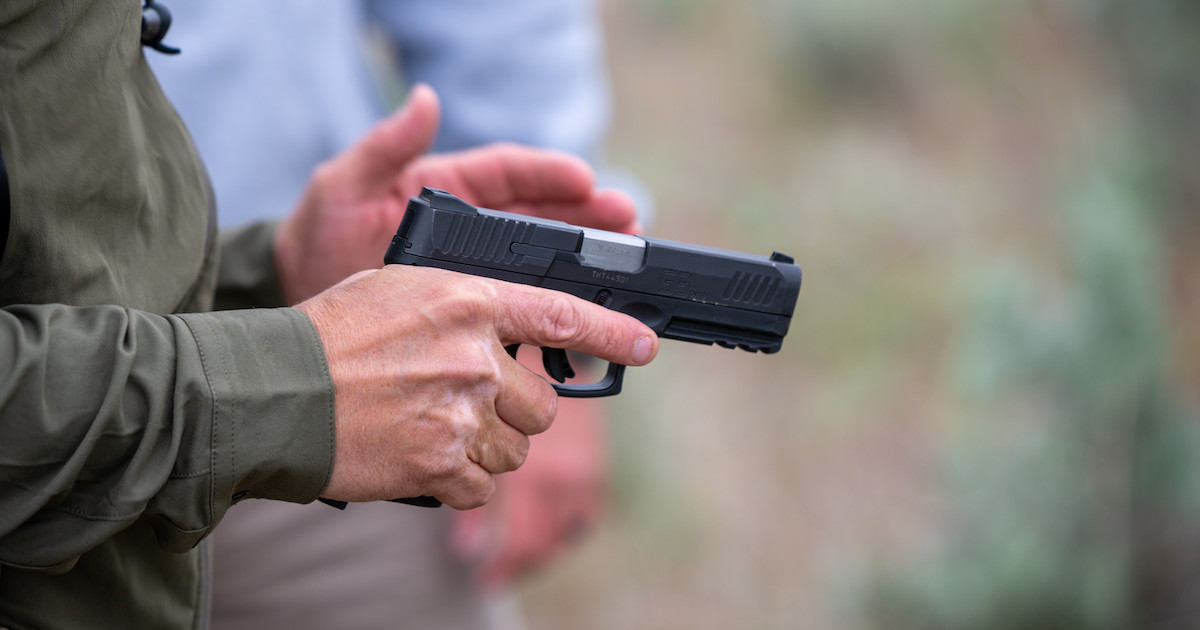Selecting the right handgun for your needs is a critical decision that requires careful consideration of several factors. Whether you’re a seasoned shooter or a first-time buyer, the process can be daunting given the wide range of options available. Here we will guide you through the essential aspects to consider when choosing a handgun that suits you best.
1. Purpose of the Handgun
The first step in selecting a handgun is to determine its intended use. Handguns can be used for various purposes, including self-defense, target shooting, hunting, or as a collector’s item. For self-defense, a reliable, easy-to-use model like the GLOCK G26 is ideal. For target shooting or hunting, accuracy and caliber are key considerations. Collectors might prioritize historical significance or unique features.
2. Handgun Type: Revolver or Semi-Automatic
Handguns generally fall into two categories: revolvers and semi-automatic pistols. Revolvers are known for their simplicity and reliability, with fewer moving parts and a straightforward operation. They are an excellent choice for beginners due to their ease of use and maintenance. Semi-automatic pistols, on the other hand, offer higher ammunition capacity and quicker reload times. They are preferred for situations where multiple shots might be necessary, such as in competitive shooting or self-defense scenarios.
3. Caliber
The caliber of a handgun refers to the diameter of the bullet and is a crucial factor in your selection. Common calibers include .22, .38, 9mm, .40, and .45. Smaller calibers like .22 are ideal for beginners due to their lower recoil and cheaper ammunition, making them great for practice. Higher calibers like .45 offer more stopping power, which might be preferable for self-defense but come with increased recoil and higher ammunition costs.
4. Size and Weight
Handgun size and weight affect the ease of handling and comfort. Larger, heavier guns are typically easier to shoot accurately but can be more challenging to carry and conceal. Conversely, smaller, lighter handguns are more convenient for concealed carry but might have more recoil and less accuracy. It’s essential to balance these factors based on your primary use for the handgun.
5. Ergonomics and Comfort
Ergonomics play a crucial role in selecting a handgun. The grip size, angle, and texture should allow you to hold the gun comfortably and securely. A good grip ensures better control and accuracy. Visit a gun store and hold various models to see how they feel in your hand. Some handguns offer customizable grips to fit different hand sizes.
6. Safety Features
Different handguns come with various safety features, including manual safeties, grip safeties, and trigger safeties. For beginners, these features can provide an extra layer of security. Experienced shooters might prefer a model with fewer safety mechanisms for quicker access. Evaluate which safety features align with your experience level and comfort.
7. Price and Budget
Handguns vary significantly in price, influenced by brand, model, and features. Set a budget before you start looking and remember to factor in additional costs such as ammunition, accessories, and training classes. It’s better to invest in a reliable firearm within your budget than to overextend financially.
8. Legal Considerations
Always be aware of the legal requirements for owning a handgun in your area. This includes background checks, registration, and any specific laws related to handgun ownership and carry permits.
9. Training and Practice
Finally, no matter which handgun you choose, proper training and regular practice are essential. A handgun is only as effective as the person using it. Invest time in learning how to handle your firearm safely and accurately.
In conclusion, selecting the right handgun involves a balance of functionality, comfort, safety, and legality. By considering these factors, you can make an informed decision that best suits your needs and ensures responsible gun ownership. Remember, owning a handgun comes with a significant responsibility, and it’s crucial to handle and store it safely at all times.




